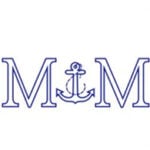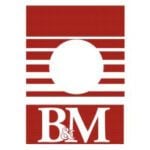-
What system of port state control applies in your jurisdiction? What are their powers?
The Port Sate Control measures prescribed in Directive 2013/38/EU of the European Parliament and of the Council of 12 August 2013 amending Directive 2009/16/EC on Port State Control have been implemented into Maltese domestic law by virtue of the Merchant Shipping (Port State Control) Regulations, 2011.
The Authority for Transport in Malta is granted numerous powers including inter alia to carry out numerous inspections on board ships, to refuse access to certain vessels and to order any ship operations to stop and even detain vessels if the Authority observes any deficiencies which are clearly hazardous to safety, health or environment. Such a detention order shall not be lifted until such deficiencies are rectified or the authorities have accepted a plan of action to redeem such deficiencies in an expeditious manner.
-
Are there any applicable international conventions covering wreck removal or pollution? If not what laws apply?
On the 18th January 2015, Malta ratified the Nairobi International Convention on the Removal of Wrecks 2007, this has been incorporated by Subsidiary Legislation 234.53. In so far as marine pollution is concerned Malta is a party to the 1972 Convention on the Prevention of Marine Pollution by Dumping of Wastes and Other Matter, the 1973 International Convention for the Prevention of Pollution from Ships, as modified by the Protocol of 1978 relating thereto and by the Protocol of 1997, the 1992 Protocol of the International Convention on Civil Liability for Oil Pollution Damage 1969, the 1990 International Convention on Oil Pollution Preparedness, Response and Co-operation, the 2000 Protocol on Preparedness, Response and Co-operation to Pollution Incidents by Hazardous and Noxious Substances, the 2001 International Convention on the Control of Harmful Anti-fouling Systems on Ships, the 2004 International Convention for the Control and Management of Ships’ Ballast Water and Sediments, as well as the 2009 Hong Kong International Convention for the Safe and Environmentally Sound Recycling of Ships.
-
What is the limit on sulphur content of fuel oil used in your territorial waters? Is there a MARPOL Emission Control Area in force?
As of 1 May 2025, the Mediterranean Sea has been designated a MARPOL Sulphur Emission Control Area (“SOx-ECA”) under Annex VI to MARPOL. In accordance with regulations 2(2) and 4(1) of the Maltese Merchant Shipping (Prevention of Pollution from Ships) Regulations, Subsidiary Legislation 234.32, MARPOL Annex VI, as amended from time to time, applies in Malta and, notwithstanding the provisions of any other law, forms part of and is enforceable as part of the law of Malta. Consequently, the maximum permitted sulphur content of marine fuel used by ships anywhere in Maltese waters is 0.10% m/m. This represents a change from the previous global sulphur cap of 0.50% m/m which applied outside ports prior to the ECA’s entry into force.
Prior to this date, Malta had already enforced stricter limits at berth. Since 1 January 2020, ships at berth in Maltese ports have been prohibited from using marine fuels with a sulphur content exceeding 0.10% m/m, in line with EU requirements. That port-based standard is now aligned with, and extended by, the Mediterranean SOx-ECA regime to all Maltese waters.
Reference is also made to Port Notice 01 of 2025 issued by the Maltese port administration, wherein it was declared that enforcement action will be taken in cases of non-compliance. Such action may include, inter alia, the detention of the vessel concerned until the non-compliance has been rectified or otherwise resolved.
Subsidiary Legislation 545.18, entitled “Quality of Fuels Regulations” (the “Regulations”) also regulates the sulphur content of marine fuels used within Maltese waters. These Regulations transpose the relevant EU legislation, including Directive (EU) 2016/802 as amended, and give effect to the requirements of Annex VI to MARPOL. They apply to all ships, irrespective of flag, when calling at Maltese ports or operating within Malta’s internal waters, territorial sea, exclusive economic zone and any pollution control zones. However, as at the time of writing, the Regulations have not yet been updated or revised to reflect the newly applicable maximum sulphur content limit of 0.10% m/m.
The Regulations provide for equivalences whereby emission abatement methods used by ships of all flags in Maltese ports, territorial seas, internal waters, exclusive economic zones and any pollution control zones are permitted as an alternative to using marine fuels that meet the maximum sulphur content requirements of the said Regulations. This option is available on condition that ships using such emission abatement methods shall continuously achieve reductions of sulphur dioxide emissions that are at least equivalent to the reductions that would be achieved by using marine fuels that meet the minimum requirements of the Regulations. The alternatives available to comply with MARPOL Annex IV, include, inter alia, gas, hydrogen and methanol as a fuel, while other alternatives include using approval equivalent methods, such as exhaust gas cleaning systems or “scrubbers”, which clean the emissions before they are released into the atmosphere
The Port Notice 01 of 2025 also lays out circumstances in which the 0.10% m/m limitation shall not apply, namely to:
1. Fuels used by warships and other vessels on military service, provided that these vessels shall, as is reasonable and practical, act in a manner consistent with the Regulations;
2. The use of fuels in a ship necessary for the specific purpose of securing the safety of a ship or saving life at sea; and
3. The use of fuels in a ship necessitated by damage to it or its equipment:
i. Where the owner or master have not acted with intent or recklessly;
ii. All reasonable measures are taken after the occurrence of the damage to prevent or minimise excess emissions; and
iii. Measures are taken as soon as possible to repair the damage
-
Are there any applicable international conventions covering collision and salvage? If not what laws apply?
With respect to collisions, Malta is a party to the 1910 Convention for the Unification of Certain Rules of Law with respect to Collisions between Vessels as well as the 1971 International Regulations for Preventing Collisions at Sea. The latter Convention has been transposed into Maltese domestic law through the Merchant Shipping (Prevention of Collisions) Regulations, 2003.
Malta is not a party to the Salvage Convention. Salvage under Maltese law is regulated by Articles 342 to 346 of the Merchant Shipping Act (Chapter 234 of the Laws of Malta) as well as the provisions of the Commercial Code (Chapter 13 of the Laws of Malta).
-
Is your country party to the 1976 Convention on Limitation of Liability for Maritime Claims? If not, is there equivalent domestic legislation that applies? Who can rely on such limitation of liability provisions?
Malta is a party to 1996 Protocol to the Convention on Limitation of Liability for Maritime Claims (the ‘LLMC’). Malta deposited its instrument of accession on 13 February 2004, making it the tenth IMO member state to accede to the 1996 Protocol. In doing so, it also triggered the entry into force mechanism under the protocol. The provisions of the LLMC have been transposed into Maltese domestic legislation by means of Subsidiary Legislation 234.16, entitled the Limitation of Liability for Maritime Claims Regulations, 2003 (the ‘LLMC Regulations’).
In accordance with Regulation 5 of the LLMC Regulations, the right to limit liability shall apply in relation to any ship, whether seagoing or not. Furthermore, the term ‘ship’ in the same Regulations includes references to any structure, whether completed or in the course of completion, launched or intended for use in navigation as a ship or part of a ship, and shall apply to any barge or like vessel however propelled. The persons identified in Article 1 of the LLMC, namely ship owners and salvors, their insurers, and any person for whose act, neglect or default the shipowner or salvor is responsible, are also generally entitled to limit their liability under Maltese law.
-
If cargo arrives delayed, lost or damaged, what can the receiver do to secure their claim? Is your country party to the 1952 Arrest Convention? If your country has ratified the 1999 Convention, will that be applied, or does that depend upon the 1999 Convention coming into force? If your country does not apply any Convention, (and/or if your country allows ships to be detained other than by formal arrest) what rules apply to permit the detention of a ship, and what limits are there on the right to arrest or detain (for example, must there be a “maritime claim”, and, if so, how is that defined)? Is it possible to arrest in order to obtain security for a claim to be pursued in another jurisdiction or in arbitration?
Malta is not a party to the 1952 Arrest Convention nor is it a signatory to the 1999 Arrest Convention. Up until 2005, the grounds upon which a party could arrest a ship in rem were based on the UK Admiralty Court Acts of 1840 and 1860. The archaic law provided limited grounds for arrest of ships in rem and did not consider the advances made in shipping over the last hundred and fifty years.
In 2006, major statutory amendments were enacted to re-vamp the arrest of ships under Maltese law. As a result, a new section was added to the Code of Organization and Civil Procedure (COCP) which introduced an exhaustive yet extensive list of maritime claims for which a party can seek to arrest a ship in rem in Malta. Article 742B of the COCP includes most maritime claims recognized under English statute law as well those found in the Arrest of Ships Conventions of 1952 and 1999.
A creditor may issue either a precautionary or an executive warrant of arrest. In the case of the latter, the creditor must already hold a judgment or other enforceable title. In the case of a former, the arresting party has twenty running days in which to commence proceedings on the merits before the competent court or tribunal, which can be in another jurisdiction.
An arrest may be obtained in relation to either a claim in personam or a claim in rem. With regards to the former, vessel would be treated like any other asset in the patrimony or estate of the debtor. In such circumstances, the creditor would need to ensure that the Maltese Courts would have jurisdiction over the debtor. Article 742(1) of the COCP lists those persons subject to the jurisdiction of the Maltese Courts. All the grounds require an element of presence or direct link to the Maltese territory. On the other hand, a creditor pursuing an arrest to secure a claim in rem, would need to ensure that it has a maritime claim which is listed in Article 742B of the COCP. Furthermore, it would generally need to satisfy the ‘relevant person test’ (explained further below in question 8).
-
For an arrest, are there any special or notable procedural requirements, such as the provision of a PDF or original power of attorney to authorise you to act?
If the arresting creditor is a foreign natural or legal person, it is necessary that it issues a written mandate to its legal representatives authorizing them to file the arrest of behalf of the said arresting party. This is normally done by means of a power of attorney. At the time of the arrest, only a scanned copy of the signed power of attorney is required. That said, at a later stage, it may be required to file a notarized and apostilled original in the relevant court acts, and therefore it is recommended that this is obtained.
-
What maritime liens / maritime privileges are recognised in your jurisdiction? Is recognition a matter for the law of the forum, the law of the place where the obligation was incurred, the law of the flag of the vessel, or another system of law?
Maltese law does not provide for maritime liens per se. The closest equivalent are those claims listed in Section 50 of the Merchant Shipping Act (Chapter 234 of the Laws of Malta) which are referred to as special maritime privileges. In all, there are sixteen listed special privileges namely; (a) the judicial costs incurred in respect of a court sale of a vessel; (b) the fees and charges due to the registrar of shipping; (c) tonnage dues including anchorage and berthing dues; (d) wages for assistance, recovery of salvage and for pilotage; (e) expenses for watchmen and to watch the ship from her entry into port up to its sale; (f) warehouse rental costs for storing ship’s tackle and apparel; (g) expenses incurred for the preservation of the ship and of her tackle including supplies and provisions to her crew after her last entry into port; (h) wages and any other sums due to the crew in respect of their employment on the vessel; (i) damages due to the crew for death or personal injury as well as medical expenses; (j) monies due to creditors for labour, work and repairs previously to the departure of the ship on her last voyage (provided the debt has been contracted by the owner or bareboat charterer or master or an authorised agent of the owner or bareboat charterer); (k) ship agency fees and disbursements paid after the ship’s last entry into port up to circa €9,320; (l) monies lent to the master for necessaries during her last voyage and the reimbursement of the price of goods sold by him for the same purpose; (m) moneys due to creditors for provisions, victuals, outfit and apparel, previously to the departure of the ship on her last voyage (provided the debt has been contracted by the owner or bareboat charterer or master or an authorised agent of the owner or bareboat charterer); (n) damages and interest due to the freighters for non-delivery of the goods shipped, and for injuries sustained by such goods through the fault of the crew; (o) damages and interest due to another vessel or to her cargo in cases of collisions; and (p) any debt (as specified in Article 2009(d) of the Civil Code) due in respect of the balance of the price from the sale of a ship.
All these special privileges would survive the voluntary sale of a vessel by up to one year. The said list also serves to help creditors establish the ranking of their claims as the list in Section 50 is organized in a hierarchical manner according to the priority of the nature of the claim. In our jurisdiction, the arrest of ships, ranking of claims and the distribution of proceed is governed solely by the law of the forum.
-
Is it a requirement that the owner or demise charterer of the vessel be liable in personam? Or can a vessel be arrested in respect of debts incurred by, say, a charterer who has bought but not paid for bunkers or other necessaries?
A vessel may not be arrested in rem unless the ‘relevant person test’ has been satisfied. Article 742D of the Code of Organization and Civil Procedure dictates that an arrest in rem is possible where the party who would be liable on the claim for an action in personam (‘the relevant person’) was when the cause of action arose, an owner or charterer of, or in possession or in control of, the ship or vessel AND that same relevant person is either the owner, beneficial owner or bareboat charterer at the time of the arrest of the ship.
There are a number of exceptions where the relevant person test is not required. If the claim is a special privilege listed in Section 50 of the Merchant Shipping Act, then a creditor may arrest the ship irrespective of who incurred the debts.
Likewise, there is no need to satisfy the test when the underlying claim relates to the possession, ownership or title of a ship, or to any issue arising between co-owners of a ship in so far as the ownership, possession, employment or earnings of that ship are concerned, or to a claim in respect of a mortgage, hypothec or charge registered over the ship.
-
Are sister ship or associated ship arrests possible?
Maltese law allows a creditor to arrest any other ship which is owned or beneficially owned by the person who would be deemed the ‘relevant person’ in relation to a maritime claim regarding another vessel.
-
Does the arresting party need to put up counter-security as the price of an arrest? In what circumstances will the arrestor be liable for damages if the arrest is set aside?
No, an arresting party does not need to automatically deposit any counter-security when applying for the issuance of an arrest. That said, once a ship is arrested, the owner of the arrested vessel may file an application requesting the Court orders the creditor to put up counter-security in accordance to Article 838A of the COCP. Should the Court accede to this request, and should the creditor fail to comply, then the arrest would be lifted.
The Court will only order the arresting party to put up counter-security if the owner of the vessel can prove that there is a ‘good cause’ to demand such security. The law does not define what constitutes ‘good cause’ but case-law in this regard would suggest that the owner would need to show it may be exposed to a legitimate claim for damages, penalties and interests as a result of the warrants.
The grounds upon which an arrested party can legitimately claim damages and penalties from an arresting party are provided for in Articles 836(8)and (9), and are quite limited. Should the Court set aside an arrest, the owner of the vessel would generally only be entitled to claim damages in the following four circumstances, namely:
a. Where following the arrest, the arresting party without valid reason does not commence proceedings on the merits before the competent court or tribunal within the stipulated twenty-day time frame permitted at law;
b. Where the creditor failed to make a demand for payment from the debtor within the fifteen days preceding the arrest. This however does not apply when there is an urgent need for the issuance of the warrant. Thus, where there exists an imminent threat that the vessel would have otherwise left Maltese water, the owner would not be able to rely on this ground;
c. Where the arresting creditor was knowledgeable of the ship owner’s solvency and its clear financial ability to pay the claims. This ground however is hardly used given that most registered ship owners are special purpose vehicle companies. Furthermore, case law shows that the threshold of proof required in this regard is rather high; or
d. Where the arrest was filed maliciously, frivolously or vexatious.
The same four grounds also give rise to the owner’s right to claim statutory penalties from the arresting parties. The law dictates that such penalties that may be awarded by a Court would amount to a sum of no less than €1,164.69 and no more than €6,988.12. That said, if the arrest was filed maliciously, there is no capping on the amount of penalties which can be awarded, but such sum shall be no less that € 11,600.
However, recent case law delivered by the Court of Appeal has widened the above scope for damages, accepting that the provisions of Article 836(8)-(9) of the Code of Organisation and Civil Procedure do not exclude the right of the arrested party to sue for damages under the general provisions of tort law under Article 1031-1032 of the Civil Code. Therefore, if fault – defined as a lack of prudence, diligence and care expected of a reasonable man – can be proven, in theory damages can be claimed.
-
How can an owner secure the release of the vessel? For example, is a Club LOU acceptable security for the claim?
For an owner of an arrested vessel to secure the immediate release of its ship, it would need to put up adequate security in court to cover the alleged claim amount. Strictly speaking, Maltese procedural law only allows two forms of security – either the deposit of the money in court or else the presentation of original bank guarantee (drawn by a Maltese bank) in court covering the claim. That said, a Maltese court would generally allow a Club LOU to be granted as alternative security for a claim, provided that the arresting creditor does not object.
-
Describe the procedure for the judicial sale of arrested ships. What is the priority ranking of claims?
Under Maltese law, a creditor with a final and non-appealable enforceable title may apply to the Maltese courts to have an arrested ship sold judicially, either by means of a court auction or alternatively by means of a court approved private sale.
In the case of a judicial sale by auction, the creditor would need to file an application requesting the Court to schedule an auction date and to appoint an auctioneer to preside over the auction. The registration of bidders is normally carried out on the day of the auction itself. Bidders fill up a registration form and are required to present all the necessary bidding documentation shortly before the auction commences. The auction is carried out in public, and the vessel is ultimately sold to the highest bidder, who must then deposit the purchase price in Court within seven running days from the auction. There is no minimum reserve and thus a creditor cannot ascertain from beforehand the sale price of the vessel.
Alternatively, a creditor may enforce its claim by applying for a court approved private sale. This gives the creditor a more pro-active approach as it may actively source the market (usually through the use of a broker) to find a buyer for the vessel. Once the best offer is identified, the creditor would normally conclude a Memorandum of Agreement with that prospective buyer, which would be conditional on the approval of the Court. The Creditor would then file a court application to request that the Judge approves or sanctions the private sale. The creditor is also required to submit two independent appraisals of the vessel. These need to be survey valuations rather than just ‘desktop’ estimates. The creditor must also adduce to the Court evidence that the proposed private sale is indeed in the interest of all known creditors and that the price offered is reasonable in the circumstances of that particular case. The application would then be served on all interested parties and a hearing date is appointed for the Judge to decide on whether to accept the sale or not.
In both cases, the vessel is transferred free and unencumbered to the new owner.
Once the purchase price is deposited in court, the creditors must participate in competition of creditor proceedings in order to establish the ranking of all claims and for the funds to be distributed accordingly. Article 54A of our Merchant Shipping Act sets out the ranking of all maritime claims. It should be noted that under Maltese law, a mortgage claim is giving relatively high priority in terms of ranking.
-
Who is liable under a bill of lading? How is “the carrier” identified? Or is that not a relevant question?
The issuer of the bill of lading is generally considered as the liable party under a bill of lading. The Carriage of Goods by Sea Act of 1954 defines a carrier includes the owner or the charterer who enters into a contract of carriage with a shipper.
As in any other jurisdiction, issues regarding identity of carrier have also come before the Maltese courts and in the resolution of such issues, English Law is often cited as authority. Maltese Courts are not bound to follow English judgements however they have a great deal of persuasive value. One case which went into all aspects of the question of identity of carrier was the case of the Hope 1, case number 212/1999 decided by the Court of Appeal on the 26 June 2009. Here the Court had to determine who was the Carrier, either the Time Charterer or the owners. There were in total 58 bills of lading all issued on paper headed by the name of the Charterer. They had slightly different wording in the signature box. The Court distinguished between those signed off by the Master in the signature box that identified the Charterer as the carrier and those signed off by the Master which did not identify the Charterer as the carrier. Our Courts in this case were heavily influenced by English Case law including the House of Lords decision in the Starsin.
-
Is the proper law of the bill of lading relevant? If so, how is it determined?
In most cases arising out of bills of lading, proper law is crucial. Subject to what is stated below related to jurisdiction clauses, Maltese courts have regularly applied the Clause Paramount in Bills of Lading and have in the main decided cases arising under such Bills of Lading by applying the legal regime identified in the Clause Paramount being either the Hague or the Hague Visby Rules.
-
Are jurisdiction clauses recognised and enforced?
The grounds upon which our Courts will exercise jurisdiction are laid down in Section 742 of the Code of Organisation and Civil Procedure. When local courts are seized of cases over which they have legal jurisdiction, over a claim regarding bills of lading containing a jurisidiction clause, the Courts will generally recognise such clauses.
However, recent case law indicates that where the jurisdiction clause in a bill of lading is not reflective of the closest link between the carrier and the shipper and if that clause points to the courts of a country outside of the European Union, this may be disregarded by the Courts. Maltese Courts have taken a practical stance on this matter and have on various occasions refused to recognise a clearly defined jurisidiction clause in a bill of lading, if there exist other closer and stronger links to the Malta. This is the case when the Court is persuaded that all the evidence for the case exits in Malta. Furthermore, if the jurisidiction clause forms part of a standard form and has not been negotiated but presented ‘post facto’ to the shipper in the form of a finalised bill of lading, this may be successfully challenged. However, if the jurisdictional clause refers disputes before a court within any EU Member State, Maltese Courts should respect the choice of jurisdiction clause subject to the provisions of Article 25 of the Brussels Ibis Recast Regulation 1215/2012.
-
What is the attitude of your courts to the incorporation of a charterparty, specifically: is an arbitration clause in the charter given effect in the bill of lading context?
The landmark judgement related to the matters raised in this question is the case of Northeastern Breeze case number 30/90 decided by the Court of Appeal on the 10th of October 2005. In that case the bill of lading had a reference to the incorporation of the terms of the Charterparty. There were issues as to which charterparty the clause was referring to however the point at issue was whether such a generic clause would also include the arbitration clause in the charterparty. The court accepted the submissions of the plaintiffs that such a generic clause could not include the arbitration clause and that specific words of incorporation of the arbitration clause would have to be made in the bill of lading.
-
Is your country party to any of the international conventions concerning bills of lading (the Hague Rules, Hamburg Rules etc)? If so, which one, and how has it been adopted – by ratification, accession, or in some other manner? If not, how are such issues covered in your legal system?
Malta is not a signatory to either the Hague, the Hague Visby Rules, Hamburg or the Rotterdam Rules. The Maltese Carriage of Goods by Sea Act of 1954 incorporates the Hague Rules by way of statute law however the Maltese Carriage of Goods by Sea Act (and therefore the Hague Rules) only apply to outbound vessels and therefore to cargo on board ships leaving Malta. Most cases related to cargoes being discharged in Malta.
The Commercial Code has a handful of articles which deal with bills of lading, however these are rather antiquated. These sections are very rarely resorted to because most disputes arising under bills of lading which come before our courts contain a Clause Paramount incorporating the Hague or the Hague Visby Rules which are fully applied by the courts.
-
Is your country party to the 1958 New York Convention on the Recognition and Enforcement of Foreign Arbitral Awards? If not, what rules apply? What are the available grounds to resist enforcement?
Malta is a party to the 1958 New York Convention on the Recognition and Enforcement of Foreign Arbitral Awards. The provisions of the said Convention have been incorporated into the Arbitration Act, Chapter 387 of the Laws of Malta. The grounds upon which the recognition and enforcement of a foreign arbitral award, issued in another State party, may be refused would be generally limited to those found under the Convention. These would include where the parties were under some incapacity, where the party against whom the award is invoked was not given proper notice of the appointment of the arbitrator or of the arbitration proceedings or was otherwise unable to present his case, where the award is not yet binding, as well as where the recognition or enforcement of the award would be contrary to Maltese public policy.
-
Please summarise the relevant time limits for commencing suit in your jurisdiction (e.g. claims in contract or in tort, personal injury and other passenger claims, cargo claims, salvage and collision claims, product liability claims).
The general time limits under Maltese law to commence a suit are prescribed in the Civil Code and the Commercial Code. However, other more specific time bars may be found under other legislation. A distinction should also be made between those time limits found under the Commercial Code may and those under the Civil Code. In the case of the former, the time limits cannot be interrupted or suspended. On the other hand, the general time limits under the Civil Code may be ‘restarted’ or put into suspension under certain circumstances. For instance, the time limit would start to run again in its entirety, upon the claimant filing a judicial letter in Court calling upon the debtor to pay up.
Claims for damages in tort are generally time barred after the lapse of two years. On the other hand, unless there is a specific time bar for the nature of the contract, all actions for the payment of a commercial debt would be time barred after five years. Claims for the payment of freight are time barred after the lapse of one year from the completion of the voyage.
-
Does your system of law recognize force majeure, or grant relief from undue hardship?
Force Majeure is generally considered a defence for the non-performance or the delay of a contractual obligation under the Civil Code, Chapter 12 of the Laws of Malta. Under Maltese law, a debtor will generally be exempt from liability for damages where he proves that the non-performance or delay was due to an extraneous cause not imputable to him. Moreover, a debtor will also not be liable for damages if he was prevented from fulfilling his obligation/s in consequence of an irresistible force or a fortuitous event. Malta has also incorporated the Convention on the Contract for International Carriage of Goods by Road (CMR) which makes similar provision for force majeure under Article 17(2).
Maltese Courts interpret Force Majeure provisions strictly in order to ensure that they are not used unscrupulously by a party in order to evade responsibility. Recent case law has seen the COVID-19 pandemic recognised as a force majeure event qualifying under the definition of ‘epidemics’ in the terms and conditions governing the parties. Nonetheless, the existence of COVID-19 or other such pandemic does not in itself create an automatic force majeure event and therefore parties will not necessarily be able to claim protection or relief should their contracts be disrupted due to a similar pandemic.
According to Maltese jurisprudence on the subject, Force Majeure has been described as an irresistible force; one that could not be avoided by the exercise of due diligence. Furthermore, our court have consistently held that force majeure cannot be invoked by a party which by its actions or inactions has contributed to the damage or loss. Therefore, in order for an event to be classified as force majeure, the event, or forces of nature, must be inevitable, in that it could not have been avoided through the exercise of due diligence of a bonus pater familias (i.e. of a reasonable person). This also entails the event was not or should not have been foreseeable. Moreover, the event must be causative, and directly impede the performance of the obligation. For the defence of force majeure to apply, the impossibility of performance must be absolute, and it will not be sufficient that the performance of the obligation has become more burdensome or is suddenly more expensive to fulfil. The burden of proving the impossibility of performance rests upon the person alleging it. Given the requirement of ‘inevitability’, persons who entered a contract after the occurrence of a force majeure event occurs might have a hard time proving that the non-performance of their obligation was unavoidable. This has resulted in the inclusion of specific contract variations to account for events that remain disruptive, but may no longer qualify as force majeure.
Malta: Shipping
This country-specific Q&A provides an overview of Shipping laws and regulations applicable in Malta.
-
What system of port state control applies in your jurisdiction? What are their powers?
-
Are there any applicable international conventions covering wreck removal or pollution? If not what laws apply?
-
What is the limit on sulphur content of fuel oil used in your territorial waters? Is there a MARPOL Emission Control Area in force?
-
Are there any applicable international conventions covering collision and salvage? If not what laws apply?
-
Is your country party to the 1976 Convention on Limitation of Liability for Maritime Claims? If not, is there equivalent domestic legislation that applies? Who can rely on such limitation of liability provisions?
-
If cargo arrives delayed, lost or damaged, what can the receiver do to secure their claim? Is your country party to the 1952 Arrest Convention? If your country has ratified the 1999 Convention, will that be applied, or does that depend upon the 1999 Convention coming into force? If your country does not apply any Convention, (and/or if your country allows ships to be detained other than by formal arrest) what rules apply to permit the detention of a ship, and what limits are there on the right to arrest or detain (for example, must there be a “maritime claim”, and, if so, how is that defined)? Is it possible to arrest in order to obtain security for a claim to be pursued in another jurisdiction or in arbitration?
-
For an arrest, are there any special or notable procedural requirements, such as the provision of a PDF or original power of attorney to authorise you to act?
-
What maritime liens / maritime privileges are recognised in your jurisdiction? Is recognition a matter for the law of the forum, the law of the place where the obligation was incurred, the law of the flag of the vessel, or another system of law?
-
Is it a requirement that the owner or demise charterer of the vessel be liable in personam? Or can a vessel be arrested in respect of debts incurred by, say, a charterer who has bought but not paid for bunkers or other necessaries?
-
Are sister ship or associated ship arrests possible?
-
Does the arresting party need to put up counter-security as the price of an arrest? In what circumstances will the arrestor be liable for damages if the arrest is set aside?
-
How can an owner secure the release of the vessel? For example, is a Club LOU acceptable security for the claim?
-
Describe the procedure for the judicial sale of arrested ships. What is the priority ranking of claims?
-
Who is liable under a bill of lading? How is “the carrier” identified? Or is that not a relevant question?
-
Is the proper law of the bill of lading relevant? If so, how is it determined?
-
Are jurisdiction clauses recognised and enforced?
-
What is the attitude of your courts to the incorporation of a charterparty, specifically: is an arbitration clause in the charter given effect in the bill of lading context?
-
Is your country party to any of the international conventions concerning bills of lading (the Hague Rules, Hamburg Rules etc)? If so, which one, and how has it been adopted – by ratification, accession, or in some other manner? If not, how are such issues covered in your legal system?
-
Is your country party to the 1958 New York Convention on the Recognition and Enforcement of Foreign Arbitral Awards? If not, what rules apply? What are the available grounds to resist enforcement?
-
Please summarise the relevant time limits for commencing suit in your jurisdiction (e.g. claims in contract or in tort, personal injury and other passenger claims, cargo claims, salvage and collision claims, product liability claims).
-
Does your system of law recognize force majeure, or grant relief from undue hardship?

















